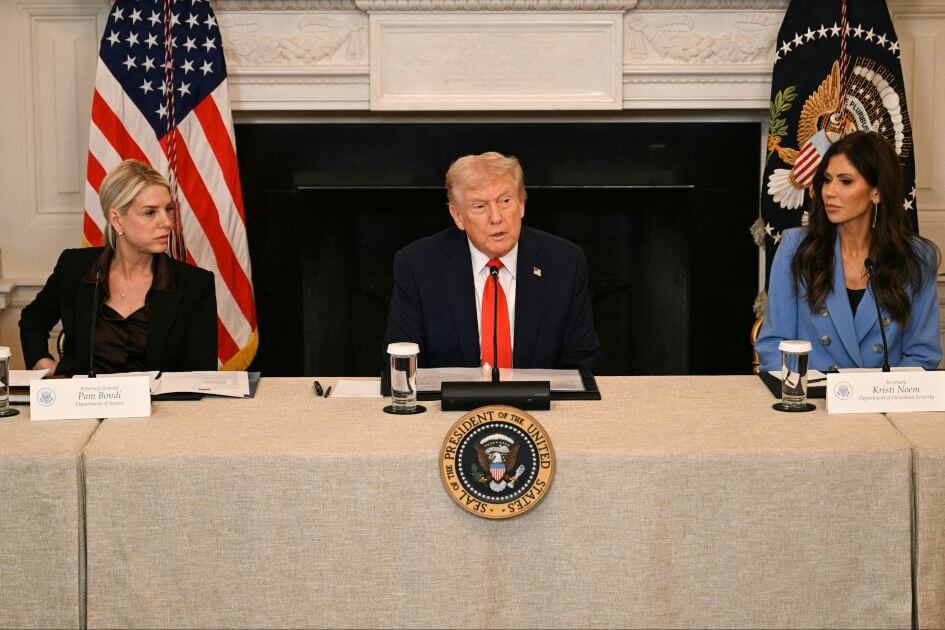By raising the salience of anti-fascism, the administration is likely to inspire a heightened public profile for the movement—and a deeper identification with its ideas and values.
By Michael Gould-Wartofsky
In recent days, President Trump and his circle have effectively declared war on “antifa.” They have bestowed a “domestic terrorist” designation upon the anti-fascist movement as a whole. And they have vowed to deploy the full force of the federal government against it—whatever it, in fact, is.
In a roundtable at the White House last week, the president pledged to inflict disproportionate violence on this purported enemy of the people: “We’ll be very threatening to them. Far more than they ever were with us.” Earlier, when he was asked by a reporter, “If someone takes to the streets and says they’re antifa, what happens to them?” he proffered the death penalty.
Speaking of anti-fascists, Secretary of Homeland Security Kristi Noem assured us the government would “root them out and eliminate them,” while likening the movement to MS-13, ISIS, Hezbollah, and Hamas. Attorney General Pam Bondi, for her part, promised to “take them apart,” in her words, “just like we did with cartels” in the Caribbean. (At the aforementioned roundtable, Noem claimed to have “the girlfriend of one of the founders of antifa” in custody, which would surely be news to that founder of antifa, if they existed.)


